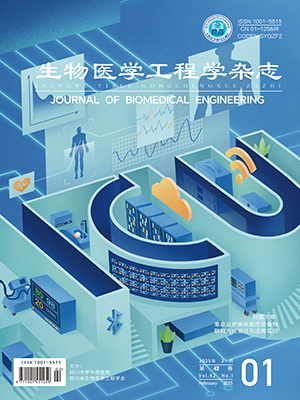| 1. |
Schroeppell B, Legendre C. Delayed kidney graft function: from mechanism to translation. Kidney Int, 2014, 86(2): 251-258.
|
| 2. |
Wong G, Teixeira-Pinto A, Chapman J R, et al. The impact of total ischemic time, donor age and the pathway of donor death on graft outcomes after deceased donor kidney transplantation. Transplantation, 2017, 101(6): 1152-1158.
|
| 3. |
Barba J, Zudaire J J, Robles J E, et al. Is there a safe cold ischemia time interval for the renal graft?. Actas Urol Esp, 2011, 35(8): 475-480.
|
| 4. |
Sert I, Colak H, Tugmen C, et al. The effect of cold ischemia time on delayed graft function and acute rejection in kidney transplantation. Saudi J Kidney Dis Transpl, 2014, 25(5): 960-966.
|
| 5. |
Chaumont M, Racapé J, Broeders N, et al. Delayed graft function in kidney transplants: time evolution, role of acute rejection, risk factors, and impact on patient and graft outcome. J Transplant, 2015: 163757.
|
| 6. |
Land W G, Agostinis P, Gasser S, et al. DAMP-Induced allograft and tumor rejection:the circle is closing. Am J Transplant, 2016, 16(12): 3322-3337.
|
| 7. |
van der Merw PA, Dushek O. Mechanisms for T cell receptor triggering. Nature Reviews Immunology, 2011, 11(1): 47-55.
|
| 8. |
Hu Qianni, Wood C R, Cimen S, et al. Mitochondrial Damage-Associated molecular patterns (MTDs) are released during hepatic ischemia reperfusion and induce inflammatory responses. PLoS One, 2015, 10(10): e0140105.
|
| 9. |
Yang Xuechao, Wu Xiang, Wu Kunpeng, et al. Correlation of serum- and glucocorticoid-regulated kinase 1 expression with ischemia-reperfusion injury after heart transplantation. Pediatr Transplant, 2015, 19(2): 196-205.
|
| 10. |
Fuquay R, Renner B, Kulik L, et al. Renal Ischemia-Reperfusion injury amplifies the humoral immune response. Journal of the American Society of Nephrology, 2013, 24(7): 1063-1072.
|
| 11. |
Bataille A, Payen D, Villiers S A, et al. Evolution of hemodynamic and functional human kidney graft dose response to dopamine using an implantable doppler device. Experimental and Clinical Transplantation, 2016, 14(2): 176-183.
|
| 12. |
Fiorina P, La Rosa S, Venturini M, et al. Natural history of kidney graft survival, hypertrophy, and vascular function in end-stage renal disease type 1 diabetic kidney-transplanted patients-beneficial impact of pancreas and successful islet cotransplantation. Diabetes Care, 2005, 28(6): 1303-1310.
|
| 13. |
Mccafferty K, Forbes S, Thiemermann C A. The challenge of translating ischemic conditioning from animal models to humans: the role of comorbidities. Dis Model Mech, 2014, 7(12): 1321-1333.
|
| 14. |
Chen J, Layton A T, Edwards A. A mathematical model of O2 transport in the rat outer medulla. I. Model formulation and baseline results. Am J Physiol Renal Physiol, 2009, 297(2): F517-F536.
|
| 15. |
Verma S K, Molitoris B A. Renal endothelial injury and microvascular dysfunction in acute kidney injury. Semin Nephrol, 2015, 35(1): 96-107.
|
| 16. |
Liu Shaoyi, Soong Y, Seshan S V, et al. Novel cardiolipin therapeutic protects endothelial mitochondria during renal ischemia and mitigates microvascular rarefaction, inflammation, and fibrosis. Am J Physiol Renal Physiol, 2014, 306(9): F970-F980.
|
| 17. |
Hu Y Q, Chen W, Yan M H, et al. Ischemic preconditioning protects brain from ischemia/reperfusion injury by attenuating endoplasmic reticulum stress-induced apoptosis through PERK pathway. Eur Rev Med Pharmacol Sci, 2017, 21(24): 5736-5744.
|
| 18. |
Oliveira T R, Oliveira G F, Simões R S, et al. The expression of endothelial and inducible nitric oxide synthase and apoptosis in intestinal ischemia and reperfusion injury under the action of ischemic preconditioning and pentoxifylline. Acta Cir Bras, 2017, 32(11): 935-948.
|
| 19. |
Chen Yeling, Zheng Hua, Wang Xueren, et al. Remote ischemic preconditioning fails to improve early renal function of patients undergoing living-donor renal transplantation: a randomized controlled trial. Transplantation, 2013, 95(2): E4-E6.
|
| 20. |
Dias P H, Oliveira G A, Dias F G, et al. Effects of immunosuppression with tacrolimus and mycophenolate mofetil on renal histology and function in single kidney rats submitted to ischemia and reperfusion. Acta Cir Bras, 2015, 30(2): 127-133.
|
| 21. |
Chiazza F, Chegaev K, Rogazzo M, et al. A nitric oxide-donor furoxan moiety improves the efficacy of edaravone against early renal dysfunction and injury evoked by ischemia/reperfusion, Oxidative Medicine Cellular Longevity, 2015, 2015: 804659.
|
| 22. |
Messiha B A, Abo-Youssef A M. Protective effects of fish oil,allopurinol,and verapamil on hepatic ischemia-reperfusion injury in rats. J Nat Sci Biol Med, 2015, 6(2): 351-355.
|
| 23. |
Moers C, Pirenne J, Paul A, et al. Machine perfusion or cold storage in deceased-donor kidney transplantation. N Engl J Med, 2012, 366(8): 770-771.
|
| 24. |
de Deken J, Kocabayoglu P, Moers C. Hypothermic machine perfusion in kidney transplantation. Curr Opin Organ Transplant, 2016, 21(3): 294-300.
|
| 25. |
Hosgood S A, Saeb-Parsy K, Hamed M O, et al. Successful transplantation of human kidneys deemed untransplantable but resuscitated by ex vivo normothermic machine perfusion. Am J Transplant, 2016, 16(11): 3282-3285.
|
| 26. |
Peired A J, Sisti A, Romagnani P. Mesenchymal stem cell-based therapy for kidney disease:a review of clinical evidence, Stem Cells International, 2016, 2016: 4798639.
|
| 27. |
Squillaro T, Peluso G, Galderisi U. Clinical trials with mesenchymal stem cells: an update. Cell Transplant, 2016, 25(5): 829-848.
|
| 28. |
Liu Nanmei, Tian Jun, Cheng Jin, et al. Migration of CXCR4 gene-modified bone marrow-derived mesenchymal stem cells to the acute injured kidney. J Cell Biochem, 2013, 114(12): 2677-2689.
|
| 29. |
Imberti B, Morigi M, Tomasoni S, et al. Insulin-like growth factor-1 sustains stem cell-mediated renal repair. Journal of the American Society of Nephrology, 2007, 18(11): 2921-2928.
|
| 30. |
Chen Yuan, Qian Hui, Zhu Wei, et al. Hepatocyte growth factor modification promotes the amelioration effects of human umbilical cord mesenchymal stem cells on rat acute kidney injury. Stem Cells Dev, 2011, 20(1): 103-113.
|
| 31. |
Faure A, Bruzzese L, Steinberg J G, et al. Effectiveness of pure Argon for renal transplant preservation in a preclinical pig model of heterotopic autotransplantation. Journal of Translational Medicine, 2016, 14(1): 40.
|
| 32. |
de Deken J, Rex S, Monbaliu D, et al. The efficacy of noble gases in the attenuation of ischemia reperfusion injury: a systematic review and Meta-Analyses. Crit Care Med, 2016, 44(9): E886-E896.
|
| 33. |
Zhao Hailin, Ning Jiaolin, Savage S, et al. A novel strategy for preserving renal grafts in an ex vivo setting: potential for enhancing the marginal donor pool. FASEB Journal, 2013, 27(12): 4822-4833.
|
| 34. |
Nakao A, Faleo G, Shimizu H, et al. Ex vivo Carbon monoxide prevents cytochrome P450 degradation and ischemia/reperfusion injury of kidney grafts. Kidney Int, 2008, 74(8): 1009-1016.
|
| 35. |
Karwi Q G, Bice J S, Baxter G F. Pre- and postconditioning the heart with Hydrogen sulfide (H2S) against ischemia/reperfusion injury in vivo: a systematic review and meta-analysis. Basic Res Cardiol, 2018, 113(1): 6.
|
| 36. |
Sekijima M, Sahara H, Miki K, et al. Hydrogen sulfide prevents renal ischemia-reperfusion injury in CLAWN miniature swine. Journal of Surgical Research, 2017, 219: 165-172.
|
| 37. |
Lobb I, Zhu J, Liu W, et al. Hydrogen sulfide treatment ameliorates long-term renal dysfunction resulting from prolonged warm renal ischemia-reperfusion injury. Can Urol Assoc J, 2014, 8(5/6): E413-E418.
|
| 38. |
Bos E M, Wang Rui, Snijder P M, et al. Cystathionine gamma-Lyase Protects against Renal Ischemia/reperfusion by modulating oxidative stress. Journal of the American Society of Nephrology, 2013, 24(5): 759-770.
|




